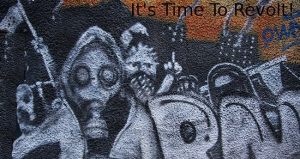via: 325
There is a group of prisoners who although imprisoned for non-political offences subsequently become politicised or radicalised whilst in jail, and in both the USA and Britain this is a phenomenon that has become increasingly widespread.
In the USA during the 1960s and 70s the radicalisation of ordinary black prisoners, in particular, was fostered by the centrality of imprisonment in the experience of black activists and revolutionaries like Malcolm X (who described prisons as “universities of revolution”), Eldridge Cleaver, George Jackson, H Rap Brown, Angela Davis and others. George Jackson described his own politicisation succinctly: “I met Marx, Lenin, Trotsky, Engels, and Mao when I entered prison and they redeemed me”.
Thus those whom W.E.B. Dubois described as an “army of the wronged” increasingly defined themselves as political prisoners who were the products of an oppressive political-economic order. This belief underpinned the praxis of radical groups such as the Black Panthers and Symbionese Liberation Army, and prisons were seen as the epicentre of a broader social and political revolution. The call for recognition of radicalised prisoners claim to political status underpinned prisoners’ demands in a series of protests that punctuated the 1970s in U.S. Prisons such as Folsom, Soledad, San Quentin and, later, Attica.
The radicalisation of ordinary prisoners in both the UK and the USA was channeled through both identity politics and the prisoner union movement. In the UK such groups during the 1970s were highly active in organised protests and uprisings against oppressive prison conditions, particularly for long-term prisoners. The politicisation of ordinary prisoners who link their imprisonment to broader social and political inequality and oppression, and prison as the epicentre of their struggle, transforming them into proto-revolutionaries striking out against the capitalist state, is a spectre that terrifies those responsible for managing and enforcing prison repression.
Islamic radicalisation within prisons is currently considered by the state a primary “intelligence and security concern”, and a leaked UK Home Office document identifies prison as a “key site of radicalisation for young Muslims”, justifying measures like the political vetting of Imams before they are permitted to preach in jails and the creation of “separation wings” or isolation units for militant Muslim prisoners. In the UK the segregation or isolation of politicised and radicalised prisoners in separate wings and units is a method of control imported from British occupied and controlled Northern Ireland where during “The Troubles” Irish Republican prisoners of war were confined to the notorious H-Blocks of The Maze prison, which through the dirty protests and hunger strikes actually became an epicentre of the wider Irish Republican struggle. Concentrating radicalised prisoners in separation units and wings inevitably creates greater solidarity amongst those prisoners and re-enforces their radicalisation, and of course in any case political ideas and ideologies cannot be isolated or segregated, even within an oppressive institution like prison. The treatment of politicised prisoners is always inevitably brutal and discriminatory, and within total institutions whose fundamental purpose is to tame and subdue the rebellious and disobedient poor, prisoners who develop a political consciousness and psychologically liberate themselves from existential and penal obedience are perceived by the prison system as the most dangerous of all the imprisoned.
Prisoners serving indeterminate or life sentences for non-political offences but who subsequently become politicised whilst in prison have a very minimal chance of hope of ever being released, even when their actual risk to the public is considered minimal or even non-existent. Officially, the prime criterion determining the “suitability for release” of indeterminate sentenced prisoners is their assessment as “low-risk” to public safety, but in fact what actually determines a life sentence prisoner’s chance of release is not a perceived level of risk to the public, but their level of obedience to prison authority.Those life sentence prisoners who embrace an ideology considered by their jailers as “subversive” and “anti-authority” are viewed as the absolute antithesis of the “model prisoner” and therefore permanently “unsuitable for release”. Prisons are microcosms of the society that creates them, and the treatment of prisoners who identify with a political belief system that directly challenges the authority and legitimacy of the state reveals the fascist core of that state, which has implications for society generally, especially during times of social unrest.
John Bowden
October 2019














